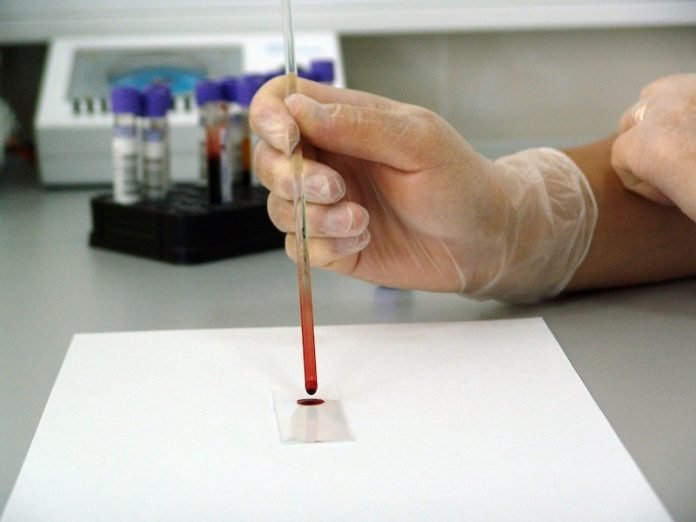
In a new study from the Queen Mary University of London, researchers found a protein that could be used to aid in the diagnosis of pancreatic cancer.
The findings suggest that a protein called pentraxin 3 (PTX3) may be a specific diagnostic biomarker—or biological measure—for pancreatic cancer, with the ability to differentiate pancreatic cancer from other non-cancerous conditions of the pancreas.
In the clinic, computerized tomography (CT) scanning is usually used in the diagnosis of pancreatic cancer.
Although CT can detect the presence of a pancreatic mass, it cannot distinguish pancreatic cancer from other non-cancerous pancreatic diseases.
This poses frequent diagnostic dilemmas in clinical practice, and there are currently no clinically applicable biomarkers for the early detection of PDAC.
In the study, researchers measured PTX3 levels in serum blood samples from patients with pancreatic ductal adenocarcinoma (PDAC) – the most common type of pancreatic cancer—and from healthy volunteers or patients with other non-cancerous conditions of the pancreas.
They found levels of the protein to be much higher in the serum samples of those with PDAC.
Patients with PDAC had notably higher serum PTX3 levels than those with two non-cancerous conditions that often present with similar symptoms to PDAC.
The findings suggest that PTX3 could be used as a biomarker to improve PDAC diagnosis, and warrants further testing to determine whether it could aid early detection of PDAC in the clinic.
Pancreatic cancer is the deadliest of the common cancers and claims the lives of approximately 9,400 people each year in the UK.
The majority of pancreatic cancer cases are diagnosed when the cancer is at an advanced stage due to a lack of specific symptoms at the early stages of the disease and the absence of specific biomarkers that can aid early detection.
This study suggests that PTX3 may be a sensitive and specific biomarker able to distinguish cancerous from non-cancerous conditions of the pancreas.
The team hopes the findings will provide direction for future prospective clinical trials to determine whether PTX3 could be effective in the clinic as a biomarker for early detection and, perhaps, used in conjunction with other biomarkers to monitor response to treatment of pancreatic cancer.
If you care about pancreatic cancer, please read studies about new therapy to kill pancreatic cancer from within and findings of this new type of diabetes can be an early sign of pancreatic cancer.
For more information about pancreatic cancer prevention and treatment, please see recent studies about this herb may help treat pancreatic cancer and results showing how to detect pancreatic cancer at treatable stages.
The study is published in npj Precision Oncology. One author of the study is Hemant Kocher.
Copyright © 2021 Knowridge Science Report. All rights reserved.



